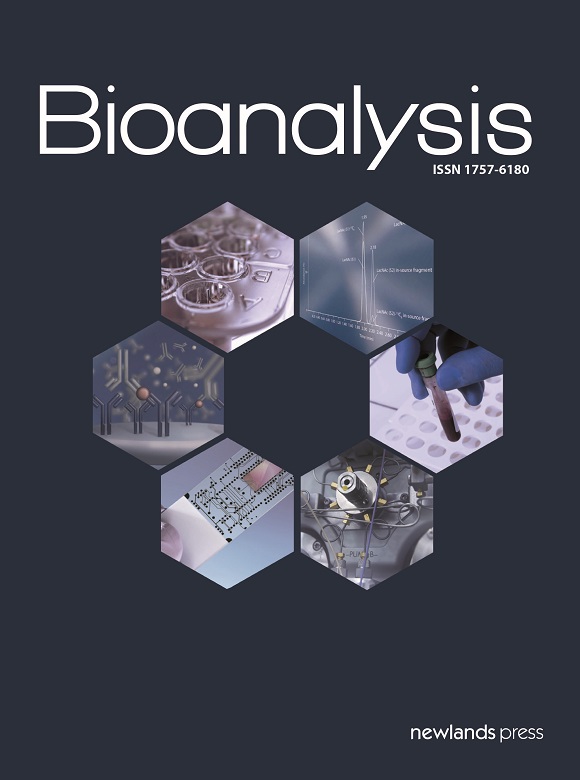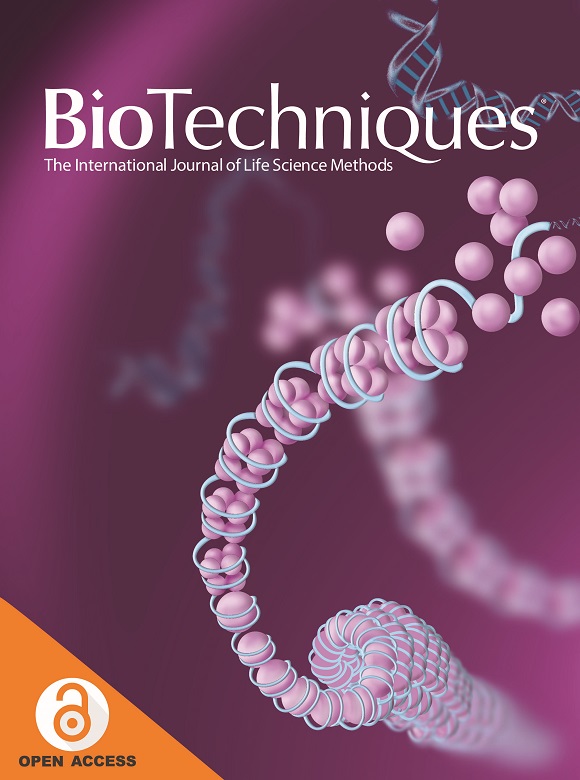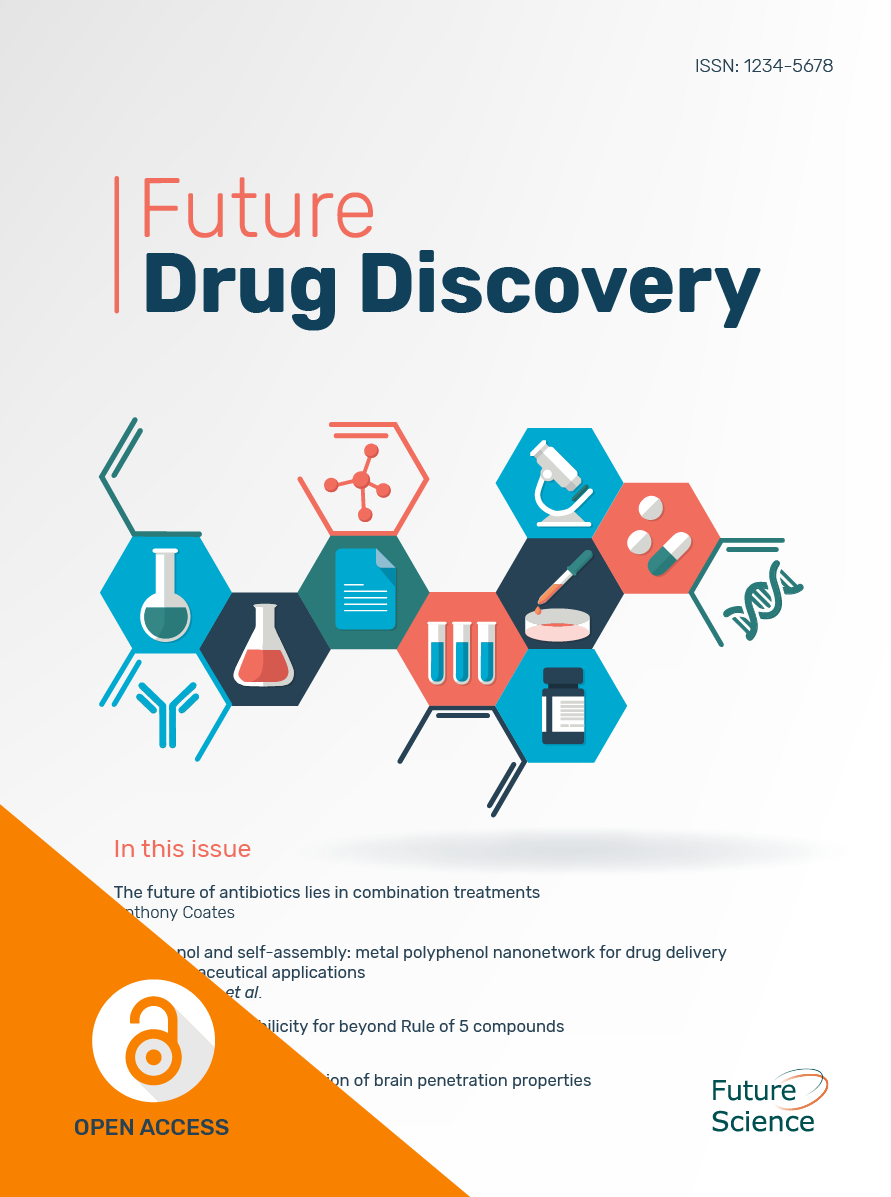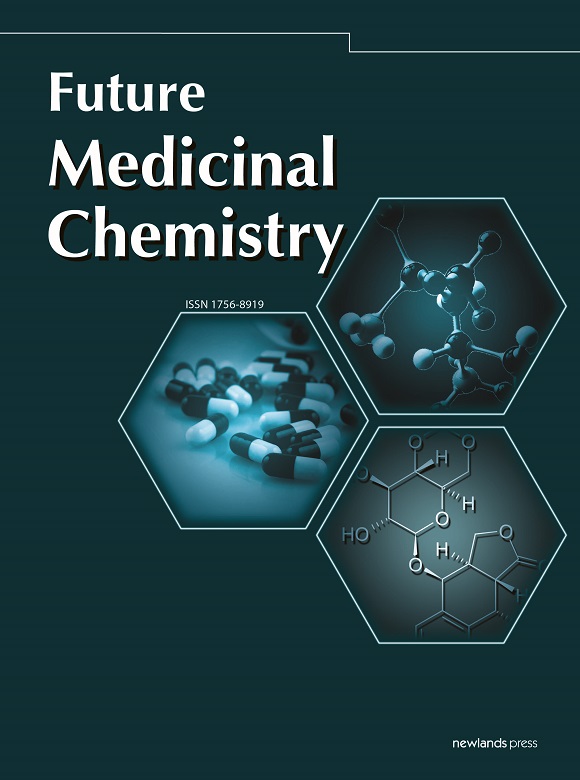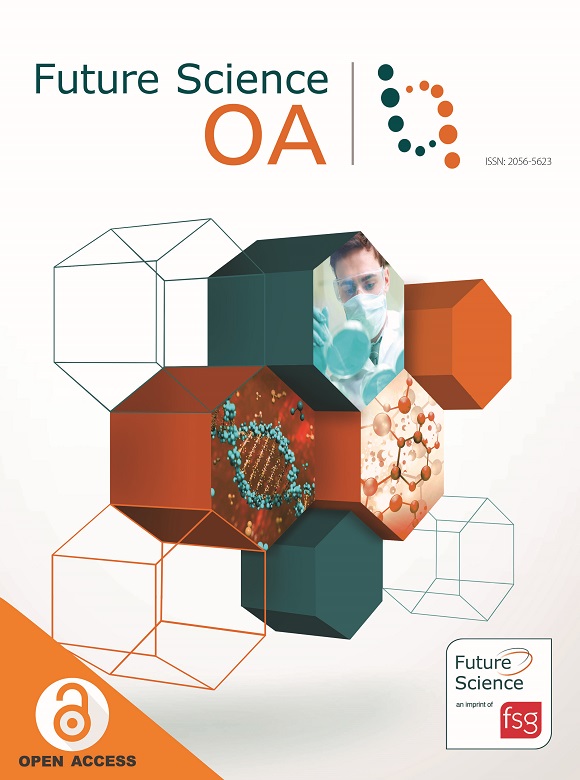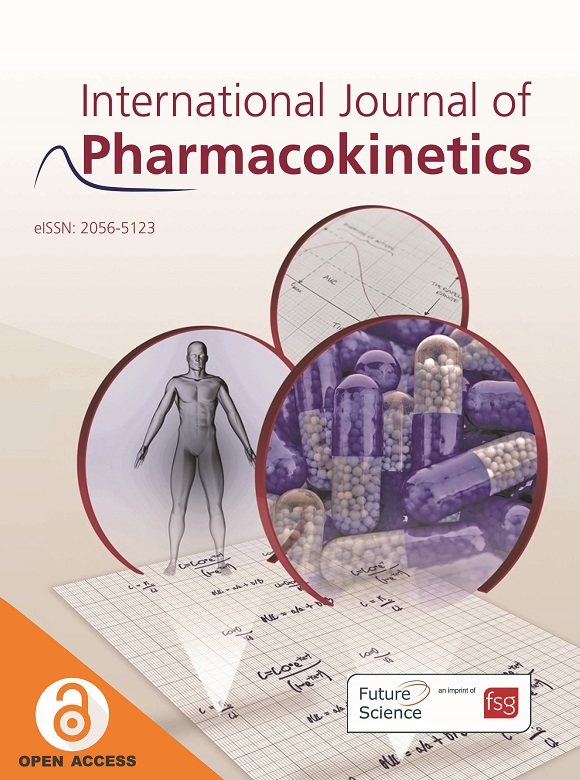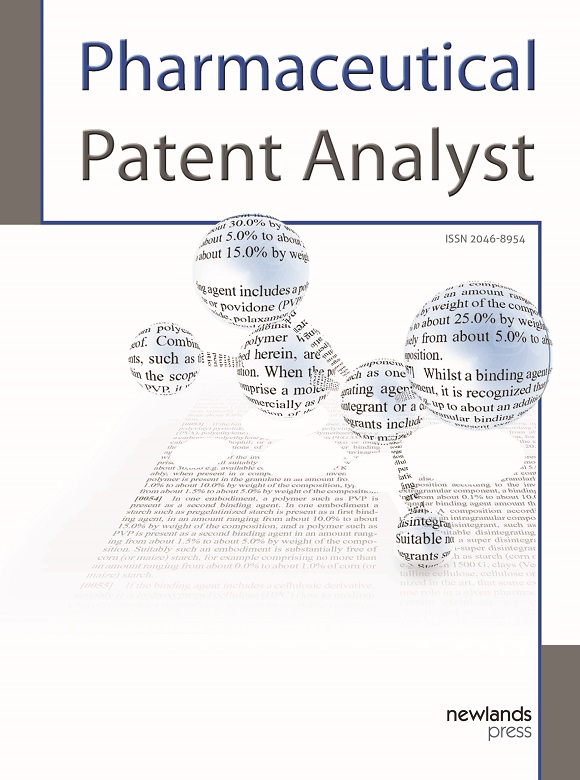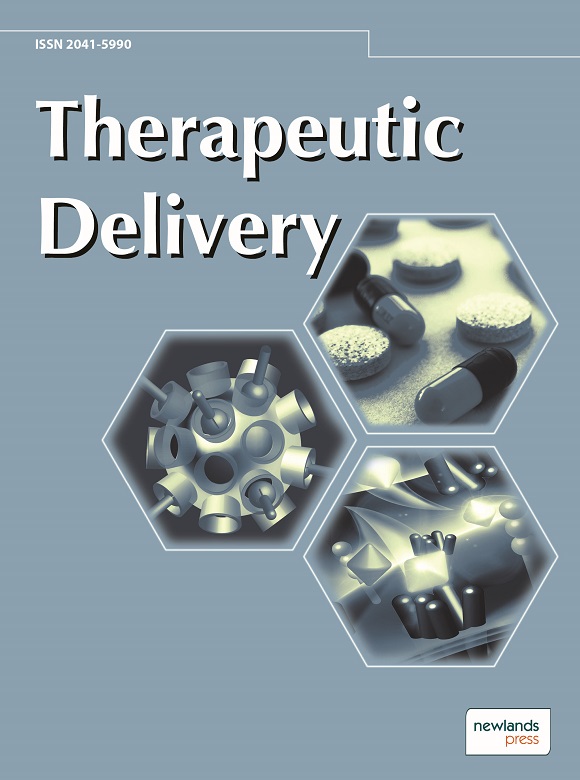
Editorial Board
Erica Golemis
Fox Chase Cancer Center, Philadelphia, USA
Dr. Erica Golemis, Ph.D., Professor, serves as Co-Leader of the Molecular Therapeutics Program, Deputy Chief Scientific Officer, and Director of the High Throughput Screening Facility at Fox Chase Cancer Center in Philadelphia. She also holds adjunct appointments at the University of Pennsylvania School of Medicine, Temple University School of Medicine, and Drexel School of Medicine. Dr. Golemis received her Ph.D. at the Massachusetts Institute of Technology, and performed postdoctoral studies at Harvard Medical School and Massachusetts General Hospital. The Golemis laboratory focuses on the study of cancer signaling networks, with particular emphasis on signaling related to cell cycle regulation and tumor invasion. Areas of expertise include the study of protein-protein interactions; analysis of cancer networks; and evaluation of targeted therapies.
Bruce Budowle
University of North Texas Health Science Center, Texas, USA
Dr. Bruce Budowle received a Ph.D. in Genetics in 1979 from Virginia Polytechnic Institute and State University. From 1979-1982, Dr. Budowle was a postdoctoral fellow at the University of Alabama at Birmingham. Working under a National Cancer Institute fellowship, he carried out research predominately on genetic risk factors for such diseases as insulin dependent diabetes mellitus, melanoma, and acute lymphocytic leukemia.
In 1983, Dr. Budowle joined the research unit at the FBI Laboratory Division to carry out research, development, and validation of methods for forensic biological analyses. The positions he has held at the FBI include: research chemist, program manager for DNA research, Chief of the Forensic Science Research Unit, and the Senior Scientist for the Laboratory Division of the FBI. In 2009 Dr. Budowle became Executive Director of the Institute of Applied Genetics and Professor at the University of North Texas Health Science Center at Fort Worth, Texas. He currently directs the Center for Human Identification. His research efforts focus on the areas of human forensic identification, microbial forensics, emerging infectious disease, molecular biology technologies, and pharmacogenetics.
Bill L. Brizzard
Brizzard Consulting LLC. IN, USA
Bill Brizzard works as an independent consultant with his firm, Brizzard Consulting LLC. He was previously the executive director of the Innovation and Commercialization Office at Indiana University and was responsible for managing intellectual property and technology commercialization. Bill has more than 30 years of experience in academics and industry. Prior to joining IURTC in 2005, he worked in business development and intellectual property for the Biotechnology Division of Sigma-Aldrich Corporation. He came to Sigma-Aldrich from Scientific Imaging Systems, Eastman Kodak Company, where he was responsible for leading the development of the FLAG® Protein Expression System that was acquired by Sigma-Aldrich in 1998. Prior to Kodak, Bill was an assistant professor of biology at DePaul University and held postdoctoral appointments at the University of Washington and M.D. Anderson Hospital.
Bill received both a Ph.D. in molecular biology and an M.S. in biology from Florida State University. He received his B.S. in Zoology from Louisiana State University.
Igor Stagljar
University of Toronto, Canada
Prof. Igor Stagljar is a highly-accomplished mid-career scientist and a Professor in the Departments of Biochemistry and Molecular Genetics at the Donnelly Centre in the University of Toronto, Canada. Amongst his most significant scientific achievements are the elucidation of functions of various membrane proteins involved in human health and disease. In particular, he is internationally known for the development of the split-ubiquitin Membrane Yeast Two-Hybrid (MYTH) and Mammalian Membrane Two-Hybrid (MaMTH) technologies. Prof. Stagljar has been awarded over 25 million dollars in research funds from various national and international funding agencies in addition to non-profit foundations and pharmaceutical companies such as Nuvelo Pharmaceuticals, Genentech, Eli Lilly and Novartis. In addition, he is a recent recipient of a prestigious $3.25 million Genome Canada “Disruptive Innovations in Genomics” grant that was awarded to only four Canadian researchers thus far. He is currently involved in major proteomics projects to map how integral membrane proteins interact to produce either healthy or diseased cells. To that end, his lab is using high-throughput interactive proteomics, genetic, and biochemical tools to understand how cell signaling and membrane transport pathways control cell behavior in normal and disease cells.
Prof. Stagljar is the author of more than 110 PubMed cited scientific papers and is the recipient of several national and international science awards, the most recent one being “The 2015 Inventor of the Year” award.
Jeffrey Felton
Western University of Health Sciences, CA, USA
Jeffrey Felton grew up on a dairy farm in West Virginia and attended the Massachusetts Institute of Technology for his undergraduate studies. He received his Ph.D. from Tufts University School of Medicine in 1981. His postdoctoral studies were with Dr. John R. Murphy at Harvard Medical School. Dr. Felton’s area of scientific interest is in Microbial Pathogenesis and Host Defense. He has served on the faculties of Boston College, the University of California, San Francisco, and Western University of Health Sciences in Pomona, California. He was one of the four founding members of the Editorial Board of BioTechniques in 1982, and led the Board for several years. Dr. Felton has published research articles in Nature, Science, New England Journal of Medicine, and other peer-reviewed scientific journals, and has received funding from the National Institutes of Health. He has been actively involved in teaching medical microbiology and immunology to students in the health care professions. He has chaired the Institutional Biosafety Committee at two universities. He served in the United States Army Corps of Engineers in South Vietnam in 1967-68, and was there during the Tet Offensive.
John Quackenbush
Harvard School of Public Health, MA, USA
John Quackenbush is Professor of Biostatistics and Computational Biology at the Dana-Farber Cancer Institute and Professor of Computational Biology and Bioinformatics at the Harvard TH Chan School of Public Health. John’s PhD was in Theoretical Physics, in 1992 he received a fellowship from the National Institutes of Health to work on the Human Genome Project, which led him from the Salk Institute to Stanford University the The Institute for Genomic Research (TIGR) before moving to Harvard in 2005. John’s research uses massive data from DNA sequencing and other assays to model functional networks in human cells. By comparing networks between groups of individuals, he has found new drug targets, explored chemotherapy resistance, and investigated differences between the sexes. He has made pioneering discoveries about how the genetic variants work together to determine our traits. John has published more than 275 papers, his work has been cited more than 63,000 times. He has received numerous awards for his work, including recognition in 2013 as a White House Open Science Champion of Change. He is also the co-founder of Genospace, a precision medicine software company that was purchased by the Hospital Corporation of America in 2017.
Joshua Z. Rappoport
Executive Director of Research Infrastructure, Boston College, USA
Dr. Joshua Z. Rappoport received a bachelor’s degree in Biology from Brown University and then went on to earn a Ph.D. from the Program in Mechanisms of Disease and Therapeutics at the Mount Sinai School of Medicine Graduate School of Biological Sciences of New York University. Following defense of his thesis Dr. Rappoport went on to perform postdoctoral work at The Rockefeller University in New York City in the Laboratory of Cellular Biophysics. Subsequently he was recruited as a faculty member in the School of Biosciences at the University of Birmingham in England. In 2014 Dr. Rappoport returned to the United States to become the Director of the Center for Advanced Microscopy and Nikon Imaging Center at the Northwestern University Feinberg School of Medicine, and a faculty member in the Department of Molecular and Cell Biology. Starting in March 2019, Dr. Rappoport took on the role of Executive Director of Research Infrastructure at Boston College, where he is now working to assist with strategic organization and operations in the core facility program at BC.
Mathias Uhlen
Royal Institute of Technology, Stockholm, Sweden
Mathias Uhlen received his PhD at the Royal Institute of Technology (KTH), Stockholm, Sweden in 1984. After a post-doc period at the EMBL in Heidelberg, Germany, he became professor in microbiology at KTH in 1988. His research is focused on protein science, antibody engineering and precision medicine and range from basic research in human and microbial biology to more applied research, including clinical applications in cancer, infectious diseases, cardiovascular diseases, autoimmune diseases and neurobiology. His group was the first to describe a number of innovations in science and has led to more than 600 publications and more than 47,000 citations. He now leads an international effort to systematically map the human proteome and transcriptome to create a Human Protein Atlas using antibodies and various omics technologies. He is member of the National Academy of Engineering (NAE) in USA, the Royal Swedish Academy of Science (KVA), the Swedish Academy of Engineering Science (IVA) and the European Molecular Biology Organization (EMBO). He is the President of the European Federation of Biotechnology. From 2010-2015, he was the founding Director of the Science for Life Laboratory (SciLifeLab), a center for molecular bioscience.
Michael P. Weiner
AxioMx, CT, USA
Dr. Weiner is a serial scientific entrepreneur. He has either founded or was one of the first 10 employees of: 454 Life Sciences (genetics, genomics, Next-gen DNA sequencing), The Rothberg Institute (understanding Tuberous Sclerosis Complex), RainDance Technologies (microfluidics), Affomix Corporation (proteomics), GnuBio (DNA sequencing using microfluidics) and AxioMx, Inc. (Next-generation affinity reagents). His major commercial accomplishments include: the invention of the QuikChange Site-directed mutagenesis method and Luminex-based SNP genotyping. He is a co-inventor of 454 DNA sequencing, emulsion PCR for DNA sequencing, droplet PCR and droplet labeling. His current interests are in the development of better affinity reagents, mostly antibodies, for the research, diagnostic and therapeutic markets using phage display, microfluidics and immunorepertoire sequence analysis.
Dr. Weiner has co-authored over 50 peer-reviewed articles, over 30 patent/patent applications, and has edited 3 books and Journal Supplements in his areas of expertise (cloning vectors, protein cloning and expression, and Genomic analysis technology). He holds a BSci in Microbiology from Penn State University, and a PhD in Genetics (with additional minors in Microbiology and Biochemistry) from Cornell University (Ithaca, NY). He performed his post-doctoral training in Physical Chemistry (Cornell University, Ithaca, NY).
Leonard F. Peruski
Centers for Disease Control and Prevention, GA, USA
Indiana University School of Medicine, Northwest Center, USA
Dr. Peruski is the lead for international laboratory operations within the Division of Global Health Protection of the US Centers for Disease Control and Prevention (CDC). From 2011-2016, he was Director, Global Disease Detection Regional Center for Central America of the CDC. Previously, he was Laboratory Chief, International Emerging Infections Program, Thailand, of the CDC from 2005-2011. He joined CDC from the Indiana University School of Medicine, Northwest Center, where he was Associate Professor of Microbiology and Immunology and Assistant Director for Research and Graduate Studies.
Dr. Peruski did his PhD at the University of Michigan School of Medicine, followed by postdoctoral training at National Jewish Hospital in Denver, Colorado, and then joined the National Institutes of Health in Bethesda, Maryland as a molecular microbiologist. In addition to extensive experience with special pathogens and other infectious agents, Dr Peruski has had several field assignments domestically and internationally. Dr. Peruski is also adjunct faculty at the Uniformed Services University of the Health Sciences in Bethesda, Maryland, and the Indiana University School of Medicine. He has over 70 peer-reviewed publications, chapters, and patents in microbiology, public health and emerging infectious diseases.
Peter Gresshoff
University of Queensland, St Lucia Brisbane, Australia
Peter Gresshoff obtained a BSc in Biochemistry and Genetics from the University of Alberta (1970), a PhD in Plant Somatic Cell Genetics from the Australian National University (1973), and a DSc for Nodulation Genetics from ANU (1989). He was appointed as endowed Racheff Chair of Excellence for Plant Molecular Genetics in 1988 at the University of Tennessee Knoxville, then (1999) Head of Botany, The University of Queensland, then Head of School of Life Sciences. Since 2003, he is Director of the ARC Centre of Excellence of Integrative Legume Research (CILR) at UQ, which in 2013 became just the Centre of Integrative Legume Research in SAFS. Gresshoff is a plant developmental geneticist, using molecular and genetic tools to understand complexities of gene networks during the control of nodule formation in legumes.
Recently he also engaged translational biology focusing on sustainable production of biofuel from the legume tree Pongamia. He is a Fellow of AAAS, Indian NAAS, Russian AAS, and was nominated for the Australian Academy of Science. He was twice awarded the German Alexander von Humboldt Fellowship and the Chinese Academy Professorial Fellowship. Professor Gresshoff has published over 400 peer-reviewed papers, edited 10 books, and holds 12 patents. His h-index is 64, with over 20,000 citations. He now holds the Emeritus Professor position at UQ, Brisbane.
Peter Oefner
University of Regensburg, Germany
Prof. Peter Oefner started his scientific career in 1984 while earning a medical doctorate from the University of Innsbruck, Austria, where he also habilitated in bioanalytical chemistry. In 1993, he was awarded a Senior Fulbright Scholarship and appointed Visiting Assistant Professor at the Department of Genetics at Stanford University. From 1999 till 2005 he was Associate Director of the Stanford Genome Technology Center, before he was appointed director of the Institute of Functional Genomics at the University of Regensburg, Germany. His current research interests include the development and application of hyphenated mass spectrometric, NMR spectroscopic and bioinformatics methods to the study of proteomes and metabolomes in cancer and kidney disease. Particular areas of interest are the role of tumor metabolism in tumor progression and immune escape as well as the learning of diagnostic and predictive molecular signatures from high-dimensional data. To date, he has co-authored 249 original publications, 34 reviews, and 28 book chapters. He holds five US patents, among others on denaturing high-performance liquid chromatography (dHPLC) for the detection of genetic variants in medical, microbial, plant, and population genetics.
Scott D. Patterson
Gilead Sciences, CA, USA
Dr. Patterson joined Gilead early in 2015 to lead biomarker discovery and development across all therapeutic areas (aside from direct acting antivirals), Inflammation, Oncology, Liver Fibrosis and host HBV/HIV Cure efforts; including responsibility for biomarkers which transition to in vitro diagnostics. From 1993-2000 and 2003-2015 he was at Amgen, Inc. initially leading their proteomics and apoptosis efforts and from 2003, as Executive Director, Medical Sciences, establishing and leading their biomarker and in vitro diagnostics programs across all therapeutic areas. From 2000-2003 he was Vice President, Proteomics at Celera Genomics Group where he established their protein-based therapeutic antibody target discovery program and Chief Scientific Officer at Farmal Biomedicines, LLC. He has served on multiple industry and professional groups associated with advancement of biomarkers and diagnostics. Dr. Patterson received his BSc and PhD in Physiology and Pharmacology at The University of Queensland, Australia where he also worked, ultimately as a Senior Research Officer in Dept Physiology and Pharmacology. He was a Staff Investigator at Cold Spring Harbor Laboratory, New York, received the Long island Biological Association, New Investigator award and was the 2002 Barnett Lecturer (Northeastern University). Dr. Patterson has authored over 110 publications, 25 book chapters and 9 patents.
Barton Slatko
New England Biolabs, MA, USA
Dr Slatko received his BA and PhD from the University of Texas, Austin (Zoology, Genetics), followed by a postdoctoral position at the University of Caifornia, Davis. He subsequently taught and performed research in the Biology Department at Williams College before joining New England Biolabs (NEB). Over the years, his laboratory has been involved with the development of new products and applications for the biotechnology industry. His lab also houses the nucleic acid sequencing core at NEB, containing both Sanger and “NextGen” capabilities. Research in Dr Slatko’s lab is currently focused on two main projects: (1) understanding the evolution and biology of the obligate Wolbachia endosymbiont present in the majority of human and animal filarial nematode parasites, affecting over 120 million people (with 1 billion individuals at risk) and is the second leading cause of disablement worldwide, and (2) microbiome projects, including metagenomic analysis from patient samples when infected with intestinal parasites such as Giardia or hookworm.
Dr Slatko also has a strong interest in science education, especially at the lower grade levels. He has been a reviewing editor and board member of BioTechniques since its inception.
Timothy Veenstra
Maranatha Baptist University, WI, USA
Dr. Veenstra obtained his PhD in Biochemistry from University of Windsor in Ontario, Canada focusing on protein structure elucidation using nuclear magnetic resonance spectroscopy (NMR) followed by the completion of a post-doctoral fellowship at the Mayo Clinic where he became interested in using mass spectrometry (MS) to study biological applications. Shortly after his post-doc he directed a proteomics and analytical chemistry lab at the National Cancer Institute (NCI). His groups’ focus was on using MS to identify biomarkers for various diseases, including cancer, and developing analytical methods to quantitatively measure the absolute abundance of cancer-related proteins and metabolites. After leaving the NCI, he worked as a Senior Vice President for Research and Development at a biotech company that focused on the discovery of diagnostic and therapeutic agents for neurological diseases. Dr. Veenstra is currently the Chair of the Applied Science Department at Maranatha Baptist University where he focuses and training the next generation of medical doctors and research scientists. Dr. Veenstra has published more than 380 peer-reviewed articles and is currently collaborating on a book describing how proteomics technology impact biological discovery.
Yoshihide Hayashizaki
RIKEN Preventive Medicine and Diagnosis Innovation Program, Japan
Yoshihide Hayashizaki is Director of the Preventive Medicine & Diagnosis Innovation Program. He obtained his MD and PhD from Osaka University Medical School in 1982 and 1986, respectively. In 1992, he joined RIKEN, and was appointed Project Director for the RIKEN Genome Project in 1995. Since then he has been taking a transversal data-driven approach to analyze transcriptomes by developing unique technologies including a series of full-length cDNA technologies. This activity was followed by the organization of FANTOM (Functional Annotation of Mammalian Genome), an international consortium, originally to annotate a large number of cDNA and subsequently expanded to transcriptome and network analysis. His research interests are focused on the understanding of biological phenomena as systems at the molecular level and its application to preventive medical care.
Piotr Chomczynski
Molecular Research Center, OH, USA
Dr Chomczynski is a scientist and educator who emigrated from Poland to the USA in 1983. In 1983-1986 he was a visiting Scientist at NIH, and from 1986-1996 he worked as a research professor at College of Medicine, University of Cincinnati. In 1987, Dr Chomczynski created and published with Nicoletta Sacchi the single-step method for RNA isolation. The publication has become a citation classic, and is number 5 on Nature’s list of all-time most cited scientific papers (2014). Since 1989, in his company Molecular Research Center, he develops techniques and reagents for RNA and DNA isolation such as: RNAzol , DNAzol, TRI Reagent and Trizol.
Dr Chomczynski has been listed as Number 17 on the Guardian list of “Giants of Science” (2003), and on the Thomson Institute “Scientific Superstars” list (2010). In 2004 he formed and successfully ran the first business TV channel in Poland. In 2010, he built and still operates processing plant producing, based on his patented process, Lycolife, a tomato juice that taste like a fruit juice.
Kent E. Vrana
Penn State College of Medicine, PA, USA
Dr. Vrana, PhD, FAAAS has served as Elliot S. Vesell Professor and Chair of Pharmacology at the Penn State College of Medicine and Milton S. Hershey Medical Center since 2004. He received his BSc with honors in Biochemistry from the University of Iowa, and his PhD in Biochemistry (Pharmacology minor) from Louisiana State University Medical Center. He completed his postdoctoral training at the Carnegie Institution of Washington (on the Johns Hopkins University campus). He joined Penn State following faculty positions at West Virginia University and Wake Forest University.
Dr. Vrana is a member of the editorial boards of several scientific journals and has served as chair and/or a member of over 110 scientific review panel meetings for the federal government. He has co-authored more than 170 scientific articles, book chapters, and monographs (including two textbooks). His research is focused on molecular neurobiology of substance abuse, neurotransmitter biosynthesis, stem cells and neurodegenerative disease. In 2009, he was named an honorary professor of the School of Medicine of the Peruvian University of Applied Science in Lima, Peru, and was inducted into the Society of Distinguished Educators at the Penn State College of Medicine. In 2017, he received the Outstanding Research Mentor Award from the College of Medicine. In 2015, he was elected a Fellow of the American Association for Advancement of Science (AAAS).
Steve Paddock
Howard Hughes Medical Institute, WI, USA
Dr. Steve Paddock is a Science Education Fellow at the Howard Hughes Medical Institute with over thirty years of experience in biomedical imaging. He has authored numerous publications on advanced applications in microscopy, digital video production, cell and developmental biology and specialized techniques in laser scanning confocal microscopy. His work has appeared in many books and scientific journals, and many of his images have been featured on their covers. Steve earned his PhD in Cell Biology and Physiology from the University of Bristol Medical School in the UK. After postdoctoral work at the Strangeways Laboratory in Cambridge, UK, Dept. of Biophysics, Kings College in London and Northwestern University Medical School, Chicago, USA, he moved to the Laboratory of Molecular Biology at the University of Wisconsin-Madison, where he has worked in Sean B. Carroll’s group for more than twenty years.
Joerg Hoheisel
Deutsches Krebsforschungszentrum (German Cancer Research Center), Heidelberg, Germany
Jörg Hoheisel heads the Division of Functional Genome Analysis at the German Cancer Research Center (DKFZ) in Heidelberg, Germany. Simultaneously, he is chairman of the DKFZ Scientific Council and member of the institute’s Board of Trustees.
His research objectives are the assessment and description of the realisation of cellular function from genetic information. There is a current focus on the analysis of protein variations and interactions by means of affinity proteomics. Another line of work is Synthetic Biology for the in vitro production of functional biomolecules and the establishment of artificial molecular systems. Earlier achievements were his involvement in sequencing the yeast genome as a coordinator and early developments in the area of microarray technology. Jörg also co-founded four companies.
Prior to joining DKFZ, Jörg worked for five years at the Imperial Cancer Research Fund in London, UK, the initial two years funded by an EMBO fellowship. His scientific emphasis then was genome mapping as a preparation for subsequent sequencing. Previously, he had studied molecular biology at the University of Constance, Germany. He finished his PhD with distinction (summa cum laude) on the subjects of topologically induced DNA-structures and the functioning of DNA-binding enzymes.
Kwok Pui-Yan
Institute of Biomedical Sciences Academia Sinica, Taiwan
Pui-Yan Kwok, MD, PhD, is a graduate of the University of Chicago Pritzker School of Medicine. After residency in dermatology at the Washington University School of Medicine, he pursued postdoctoral training in Genomics at Washington University in St. Louis and the University of Washington in Seattle. Dr. Kwok joined the Faculty at Washington University School of Medicine in 1993 as an assistant professor of Dermatology and Genetics. He rose to the rank of Associate Professor in 1999 before he was recruited to the University of California, San Francisco, in 2002, as the Henry Bachrach Distinguished Professor, where he was also Professor of Dermatology and Co-Director of the UCSF Genomic Medicine Initiative. In October 2017, he became the Director of the Institute of Biomedical Sciences at the Academia Sinica in Taiwan. Dr. Kwok’s research focuses on developing tools and strategies to study the human genome, and applying the latest technologies to study the role of human variation in common traits and diseases.
David Cronk
Charles River Laboratories, Cambridge, UK
David Cronk is Director of High Throughput Screening Sciences at Charles River, a leading provider of contract drug discovery services. David has been in the CRO sector since 2005 and has responsibility for HTS and the associated assay development activities. In this role he discusses hit finding and compound profiling projects with potential and existing clients across the pharmaceutical sector, ranging from the large pharmaceutical companies to charitable foundations and academic institutions, to advise and discuss assay options covering the entire spectrum of target classes. Once projects are initiated he provides hands on project management or higher level guidance for all activities of the hit finding process including assay development, compound management, and data interpretation, all of which play an important role in successful project delivery. He is an experienced assay development and screening scientist gained within the GlaxoSmithKline organisation (15 years) undertaking assay development and screening, largely focussing on cell based assays for GPCR and ion channel targets and a further 3 years in the biotech sector, heading the molecular pharmacology team for an analgesia focussed drug discovery company. David also serves on the General Committee and Science Strategy Committee for the European Laboratory Research and Innovation Group (ELRIG).
George Poste
Arizona State University, AZ, USA
Dr. George Poste is the Del E. Webb Professor of Health Innovation and Chief Scientist, The Complex Adaptive Systems Initiative (CASI) (http://www.casi.asu.edu) at Arizona State University (ASU). This program integrates research in genomics, synthetic biology and high performance computing to study the altered regulation of molecular networks in human diseases to develop new diagnostic tests for precision (personalized) medicine and the remote monitoring of health status using miniaturized body sensors and mobile devices. He assumed this post in 2009. From 2003 to 2009 he directed and built The Biodesign Institute at ASU. He is a Fellow of the U.K. Royal Society, the Royal College of Pathologists and the U.K. Academy of Medicine, a member of the Council for Foreign Relations, and U. S. National Academy of Medicine Board on Global Health. He has served as a member of the Defense Science Board of the U.S. Department of Defense and currently serves on advisory committees for several U.S. government agencies in defense, intelligence, national security and healthcare.
 Andrew P French
Andrew P French
University of Nottingham, UK
Dr Andrew P French is an Associate Professor at the University of Nottingham, UK. He has a PhD in Computer Science, and his research is in the field of bioimage analysis, developing novel AI and computational methods to extract data from biological images. He has expertise in both computer vision and deep learning approaches to image analysis, with a strong focus on AI technique development. He has developed algorithms for a wide variety of microscopy images (light, confocal, light sheet etc.) as well as developing approaches for whole organism imaging. In particular, analysing 2D, 3D and 4D images for plant phenotyping is a current focus of his research.
 Shenglin Huang
Shenglin Huang
Fudan University, China
Shenglin Huang obtained his PhD in 2009 from Shanghai Jiaotong University School of Medicine in China. After graduation, he worked in the State-key Laboratory of Oncogenes and Related Genes, Shanghai Cancer Institute. He completed his postdoctoral training at Stanford University. In September 2013, he joined Fudan University Shanghai Cancer Center and Institutes of Biomedical Sciences, where he was appointed Principal Investigator. His research focusses on cancer transcriptome and bioinformatics, with a special focus on identification and characterization of functional RNAs in cancer. He established the exLR-seq, ASJA bioinformatics tool and exoRBase database. He discovered the presence and enrichment of circular RNA in exosomes. He found abundant tumor-specific transcripts (TSTs, eg. LIN28-TST) in cancer.

Richard J. Ablin
University of Arizona, AZ, USA
Dr. Richard J. Ablin is a professor of pathology at University of Arizona College of Medicine, Arizona Cancer Center and BIO5 Institute. He is also the President of the Robert Benjamin Ablin Foundation for Cancer Research, founded in memory of his father. Dr. Ablin received his Ph.D. in Microbiology from State University of New York at Buffalo in 1967, and continued his training in immunology as a United States Public Health Service Postdoctoral Fellow under the late renowned Distinguished Prof. Ernest Witebsky. He was honored as recipient of the First Award for Scientific Excellence by The Haakon Ragde Foundation for Advanced Cancer Studies in recognition “for his invaluable contribution to humankind and exceptional scientific insight and valiant fight against cancer.” Dr. Ablin discovered prostate-specific antigen (PSA) in 1970, which led to the development of the PSA test, and was a nominee for the Lasker Award in 1997. A pioneer of cryosurgery and the concept of “cryoimmunotherapy” for the treatment of cancer, he has extensive experience in cancer research, particularly the development and progression of cancer.
He is also author of the book: The Great Prostate Hoax: How Big Medicine Hijacked the PSA Test and Caused a Public Health Disaster.

